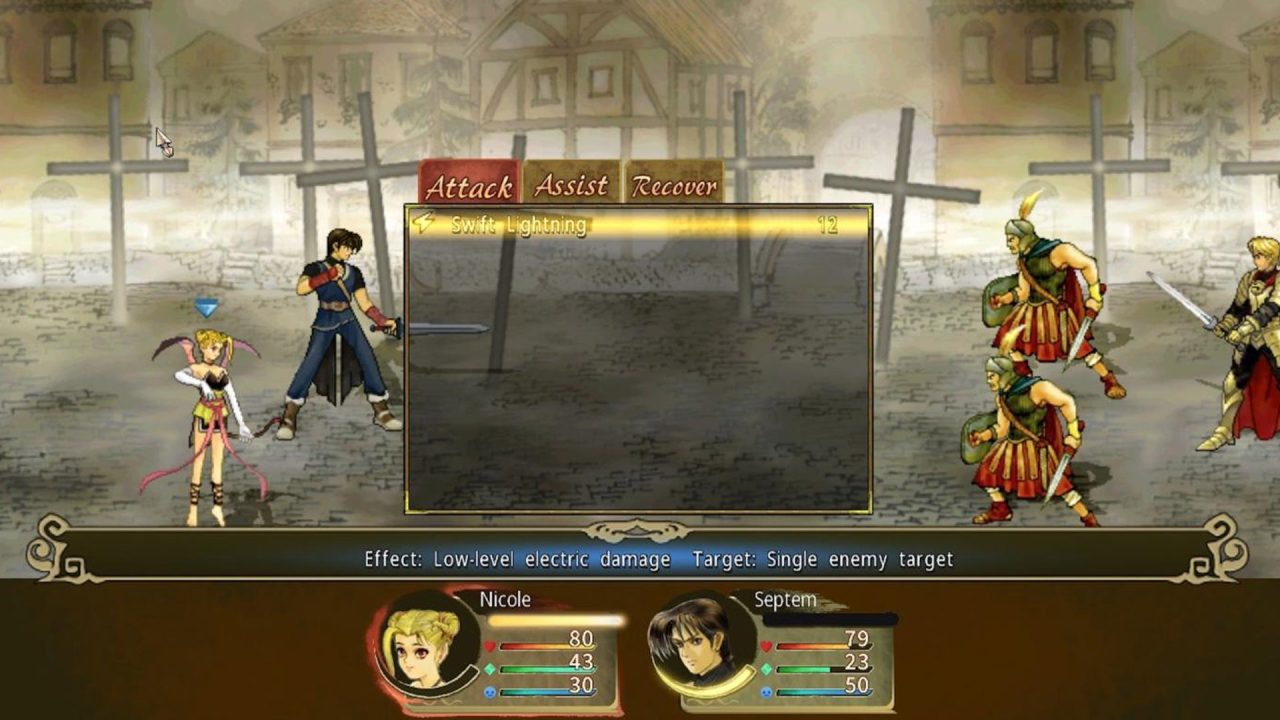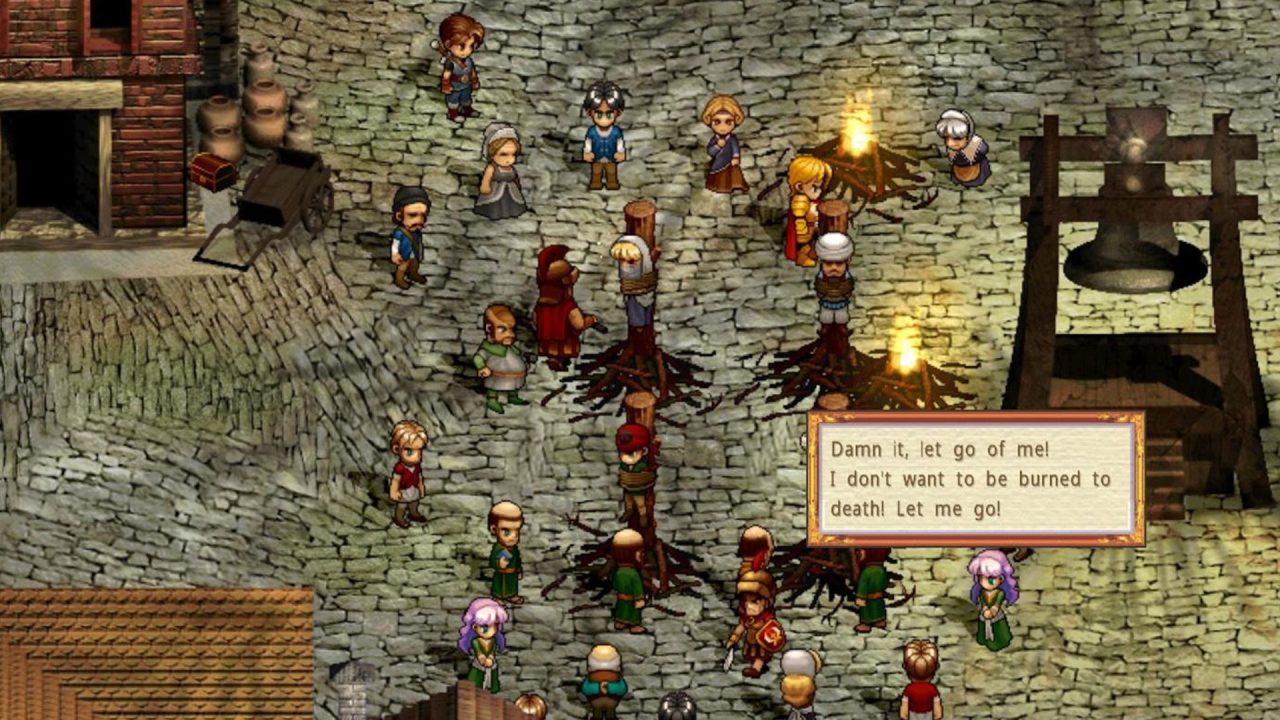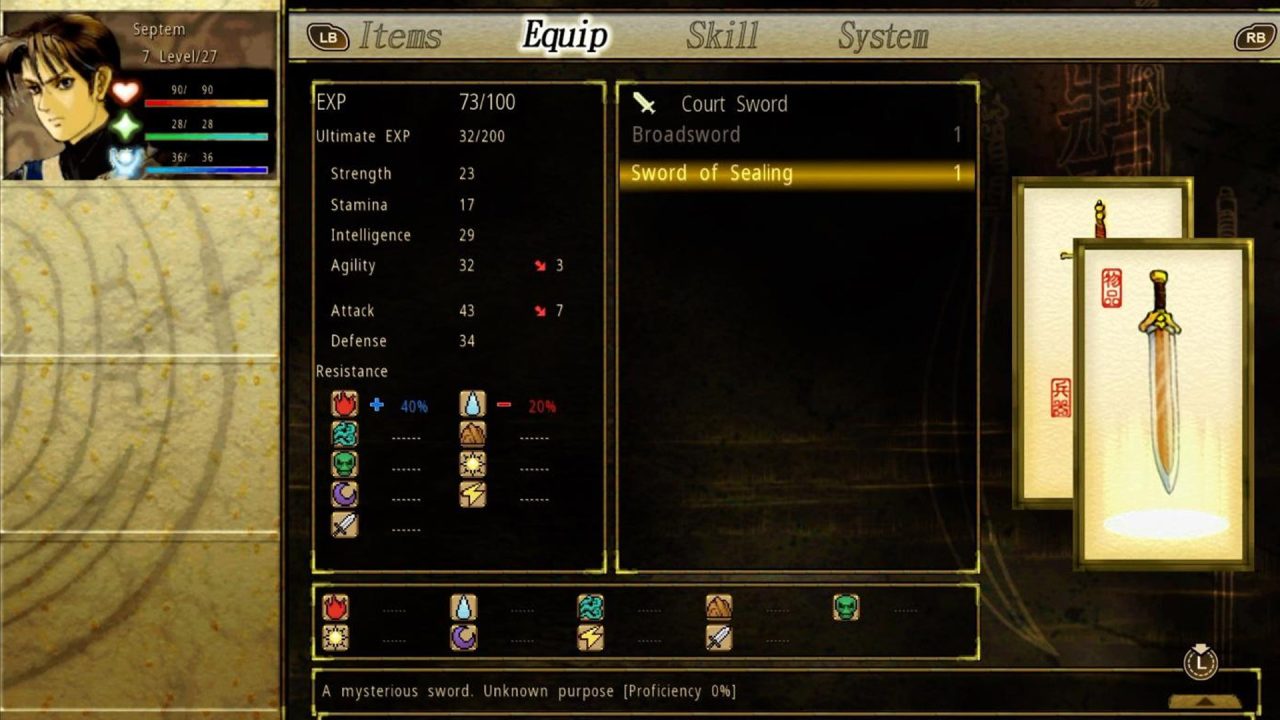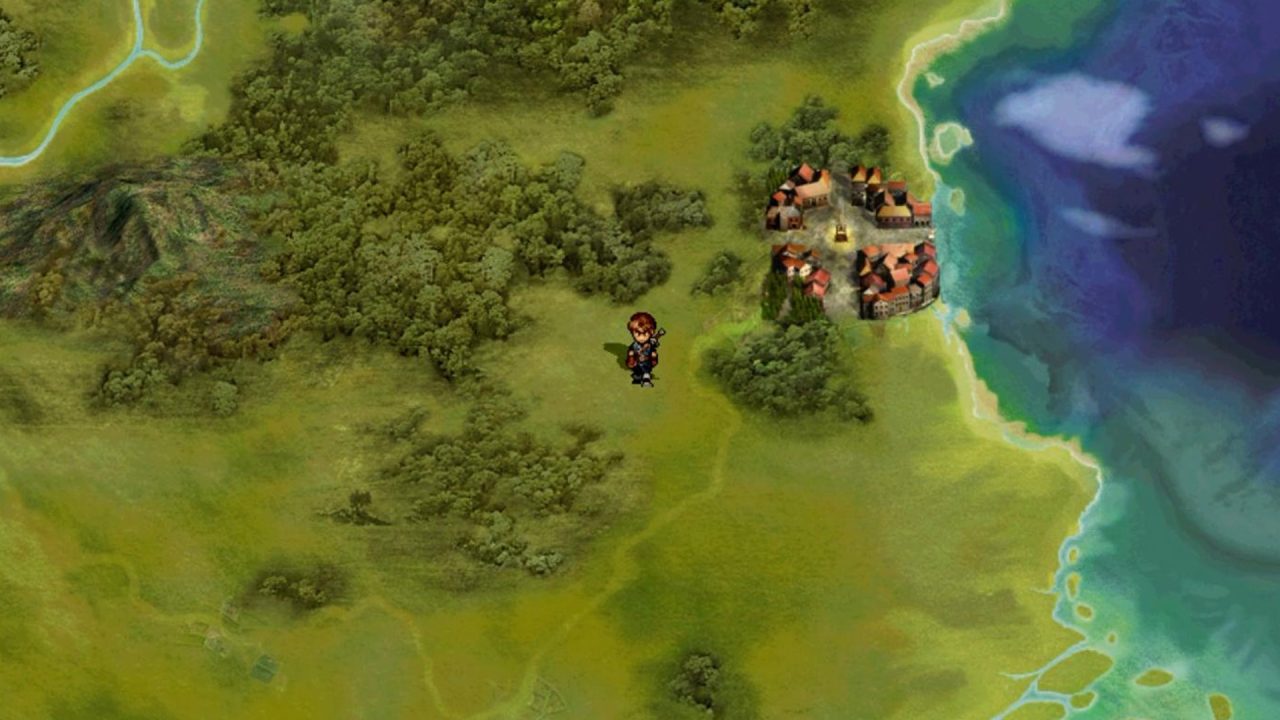In 1999, the Chinese gaming community got to experience Xuan-Yuan Sword 3, the third numbered installment of Taiwanese developer Softstar Entertainment’s popular RPG series, often compared to Final Fantasy. Fast forward to 2023, when Western gamers finally get to try a version of the game published by Eastasiasoft and Gamera Games. Xuan-Yuan Sword: Mists Beyond the Mountains is a fantastical alternative history of West meets East in what should be a celebrated remaster of a traditional RPG classic. Instead, a subpar English translation and noticeable glitches mar the experience. This game certainly isn’t the Xuan-Yuan Sword title I’d recommend series newcomers try first, given its English localization’s myriad of issues. It is a shame considering the series has so few games readily available in English. Further pouring salt in the wound, there’s still an inkling of potential greatness within Xuan-Yuan Sword: Mists Beyond the Mountains, but it takes patience to overcome its flaws.
Xuan-Yuan Sword: Mists Beyond the Mountains occurs during Europe’s Dark Ages. A Frankish knight specializing in intelligence-gathering named Septem is assigned a mission of utmost importance: uncovering the means to win all wars, which purportedly exists somewhere in the East. His journey spans years, taking him first across Europe to the Middle East and finally to the Tang Empire of China. But dark forces gather worldwide, sowing evil and chaos and forcing Septem to rely on otherworldly allies and abilities to counter them. Can Septem succeed in his task when he must combat not only the human forces of evil but also the legions of Hell itself?

Septem’s evolution as a character is the most striking thing that remains intact even with Xuan-Yuan Sword: Mists Beyond the Mountains’ shoddy English translation. He’s initially a somewhat realistic and pragmatic individual, willing to do many “not nice” things to meet his goals: a stark contrast to the chivalric notions often associated with knights. However, as he traverses different areas discovering how conflict and loss affect people, his attitude subtly changes, especially once he befriends an elderly Shao-Lin monk from China who seeks to prevent the loss of life whenever possible. This shift in Septem’s character, alongside some surprisingly insightful societal and philosophical commentary, helps showcase the potential hidden beneath the game’s shoddy script work. Sadly, these highlights are few and far between, constantly mired by an English script struggling to convey its points properly.
Xuan-Yuan Sword: Mists Beyond the Mountains’ English language version is so bad that it cycles back around to being somewhat entertaining if you have the patience to put up with it, not unlike those over-the-top horrible English dubs of Hong Kong martial arts flicks from back in the day. The general idea behind each line in the game stays relatively understandable, but the tone and delivery are off, grossly exaggerating or oversimplifying the message. Grammar and spelling mistakes abound, and you constantly get lines such as “a dog who bites the hand of its owner is a bad dog” (which, to be fair, isn’t necessarily untrue so much as it’s an awkwardly worded sentiment). Tragic and incredible events are followed by characters announcing, “I have to go,” without fanfare. A child who bonds with Septem and even takes a terrifying trip through Hell gets upset and cries, only for it to be noted in his dialogue as “boo-hoo,” turning the scene sarcastic when that was not the intention. Take the character of Nicole as another example. Early in the story, a scene showcases why someone with her childish demeanor having access to demonic powers could be disastrous when she throws what amounts to a temper tantrum, seriously hurting an innocent bystander. Septem is understandably upset with Nicole over this. Still, the way his reaction is translated almost appears to be the equivalent of “oh, you” before moving on far too quickly, given the situation.

That isn’t to say there aren’t some standout moments in the script, even with the poor translation. Some instances that still stand out despite the script foibles are an NPC constantly commenting on his desire to write about every dangerous experience he encounters, a Sphinx statue saying they’ve been without solid opinions or feelings for centuries, a woman taking revenge for her lost family via a vase to her nemesis’ head, and everyone confusing Hayashi’s Japanese stealth garb for a hoodlum’s ensemble whenever he dons it. But the amusement that these moments provide is minuscule compared to how unintentionally funny the script’s poor translation is. It takes extraordinary patience to understand what is meant or said throughout the title; not everyone will even want to attempt it, nor should they have to. Because of the translation, there are moments throughout the game where it isn’t evident what actually happens. For instance, a time skip turns out to result from a powerful illusion, but were our heroes stuck in it for those years, or were they flash-forwarding quickly through it? The game’s ending makes me think it wasn’t an actual time skip, given a particular character’s reappearance, but it never clearly states either way. There are also implications, such as the potential connection between Nicole and another character, that are never explained explicitly. However, that could be a case of the game’s storytelling style instead of the localization. It’s a shame because I found myself entertained by the script more for the wrong reasons than I was for the thoughtful messages it meant to convey.
As far as gameplay goes, Xuan-Yuan Sword: Mists Beyond the Mountains is a traditional RPG in a similar vein to a classic Final Fantasy title. If you’ve played games of that ilk before, you know what you’re getting into with this title. It isn’t setting out to reinvent the wheel but does a decent job at being what it is. You take on the role of Septem and talk to various NPCs in towns and other areas, often initiating side quests. Most of these are simple fetch quests, though there are also head-scratching mathematical problems to solve and some questions that rely on historical knowledge to correctly answer for your reward. Outside of towns and villages, you’re free to wander the world map as you see fit, with the areas available to travel to and the world map terrain changing depending on where you are in the story. The game is set in the far past, so it wouldn’t make much sense to be able to travel from Europe to China in the blink of an eye. There are dungeon areas to traverse too, where frequent random encounters await.

Battles are turn based, with four controllable party members. There are three meters to note: health, spiritual power (which allows a character to perform exceptional moves and spells), and vitality (most often used to summon monsters). During fights, characters can eventually build up to perform a decisive move called an Ultimate, with the chance to recharge for multiple usages. You equip special celestial items/weapons to characters, granting special boons or abilities once you’ve acquired enough mastery points through fighting. Most random battles are easy if you are adequately leveled but boss fights spike the difficulty noticeably. There’s a reason every party member has at least one recovery spell in their arsenal! Characters raise levels by gaining experience points and obtain more robust gear and weapons by visiting shops or by acquiring them through dungeons or a technique called spirit fusion.
Spirit fusion is the unique gameplay feature in Xuan-Yuan Sword: Mists Beyond the Mountains. However, it is reminiscent of a more simplified version of the monster-collecting and fusing mechanics in the Shin Megami Tensei series. Septem has an artifact called the Spirit Fusion Pot, granting him a special “Tame” command that he can use during battles against most enemies. Taming a monster adds it to your inventory like an item. You can then use the Spirit Fusion Pot to combine two different monsters or other items to acquire an even stronger monster or item. Party members can summon up to two monsters from the inventory to aid you during battle, where they perform moves through AI control every turn until recalled or the fight is over. You can also equip two monsters per character in your party, like armor pieces, granting the character status bonuses. It’s an entertaining system, and there’s a lot of monster-collecting variety: once you gain access to the Western and Eastern mythological branches, there are two different potential outcomes for a given fusion attempt.

Visually, Xuan-Yuan Sword: Mists Beyond the Mountains has some eye-catching elements. The pixel graphics do the trick nicely, and I especially love the battle sprites. The main menu’s art and the detailed battle sprites are quite pretty, and I love how the backdrops for the world map areas and the backgrounds for fights are reminiscent of brush paintings. The character art used in text boxes for specific characters is reminiscent of the first Suikoden’s art style, though there is some visual dissonance between the different portraits. Certain scenes, such as a vast naval battle early in the plot, have cinematic qualities and even significantly utilize FMV (with some dated 3D CG work). The UI is competent though sometimes, with thin, white text against a lighter backdrop, I had to strain my eyes to read anything, which was incredibly frustrating during the game’s ending scenes.
I played the game on a docked Steam Deck and didn’t notice as many glitches as others have encountered, though there were three instances where the game crashed on me during dungeon exploration. Fortunately, the auto-save feature is frequent enough that it wasn’t more than a minor annoyance. I did uncover one noticeable hiccup that froze my game, occurring when guest characters were traveling with the party as they trailed behind Septem at a snail’s pace. At one point, a guest character somehow blinked out of existence in a dungeon when I wasn’t paying attention, and I couldn’t activate the next story scene. Fortunately, leaving the dungeon caused him to reappear, so I could keep him in view on my second traversal by strolling through the area. That finally allowed me to get through the scene, but it’s frustrating when something like that happens, and I only got past it through trial and error. The text became blurrier and more challenging to read at specific points in the game, though those instances were temporary in my playthrough. Sound-wise, Xuan-Yuan Sword: Mists Beyond the Mountains boasts excellent sound effects and an emotional, evocative soundtrack that captures the feel of each game area wonderfully. I immensely enjoy the battle themes in particular, though it is jarring how they sometimes totally turn off during longer fights before starting up again.
Xuan-Yuan Sword: Mists Beyond the Mountains is a rather interesting game to review. On the one hand, I am perhaps too lenient towards the English translation by rating it as I have, but there’s still a solid RPG experience at the game’s core. I admit to being entertained by the English script for all the wrong reasons, but I became engrossed by it. The clues of “something better” within the plot proved both frustrating and enough to keep me speculating. It’s a shame the game couldn’t have been translated more adequately because I can see where the title could have appealed to those wanting a thoughtful, solidly set-up traditional RPG. Despite this game’s flaws, I still want to see more Xuan-Yuan Sword titles released in the West. But, of the ones that have gotten localized thus far, Xuan Yuan Sword 7 is the more substantial title despite its action RPG leanings. Unfortunately, some things are lost in translation in this remaster, making the journey to the East a conflict at best.


